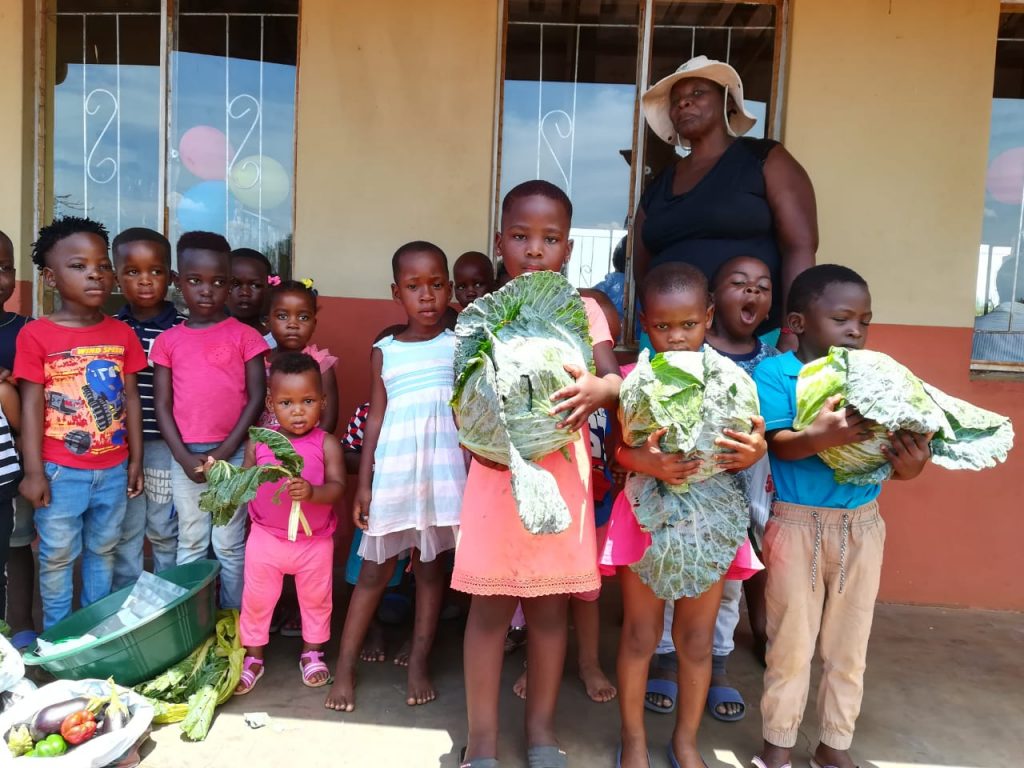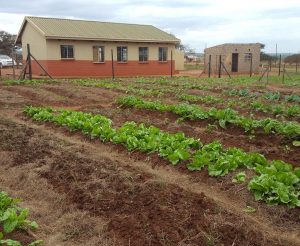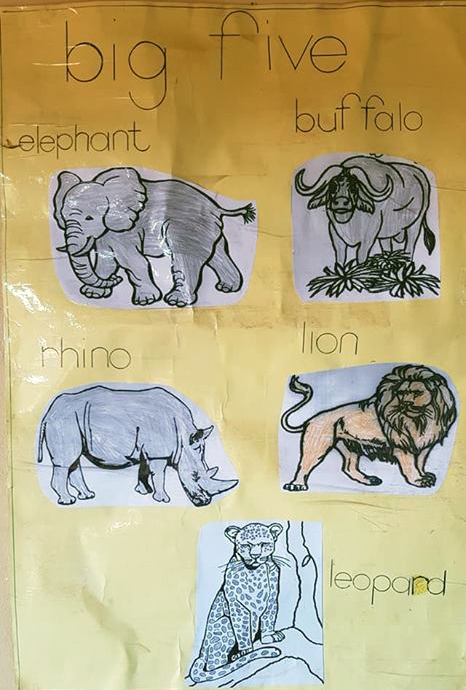
Vezukukhanya Crèche, in the deeply rural KwaJobe region of northern KwaZulu-Natal, is more than a safe place for families to leave their children while they go to work. It is a place where young children can play, socialise and interact; where they can learn critical skills and develop on a physical, social and emotional level. For the 52 children attending the crèche, it is also a place where they can receive daily meals; which is essential in an impoverished area where many families are unable to secure a diverse variety of fruit and vegetables, and as a result suffer from malnutrition. We understand how important these foundational years are to a child’s development and, with our partners and funders, have been developing food gardens at crèches like Vezukukhanya across the area to support their daily feeding schemes.
 With funding from the Bel Foundation (Fondation-Bel) in the first quarter of 2018, we have established gardens at three ECDs (benefitting approximately 167 children), and provided on-going mentorship and training for teachers and garden volunteers. The crèches were taught how to garden using agro-ecological (permaculture) methods, which are techniques which protect the environment, save water and are hardier to the increasing risks of drought and climate change. Planting is staggered so that teachers can harvest throughout the year and the fact that organic methods are used means the children can benefit from eating healthier meals, free from any dangerous pesticides or fertilisers.
With funding from the Bel Foundation (Fondation-Bel) in the first quarter of 2018, we have established gardens at three ECDs (benefitting approximately 167 children), and provided on-going mentorship and training for teachers and garden volunteers. The crèches were taught how to garden using agro-ecological (permaculture) methods, which are techniques which protect the environment, save water and are hardier to the increasing risks of drought and climate change. Planting is staggered so that teachers can harvest throughout the year and the fact that organic methods are used means the children can benefit from eating healthier meals, free from any dangerous pesticides or fertilisers.
Our work has been supported by Project Rhino as well as the agricultural mentorship team from WILDlands. With their help, we are now establishing gardens at a further four ECDs in the area and are aiming to establish an additional garden per month. We are also providing training to parents and families so that they can develop their own nutritive gardens at home.
Why the KwaJobe region?
In addition to being a severely impoverished and under-developed area, the KwaJobe traditional authority is located just beyond the borders of Mkhuze Game Reserve – a protected area which continues to be targeted by rhino poaching syndicates and international crime networks. The Project Rhino collaborative has recognised the vital role that communities near game reserves can play in combating wildlife crime as they are familiar with local conditions and quick to notice suspicious persons in the area.
Unfortunately, many communities have a long history of mistrust with their conservation neighbours and see little benefit from the numbers of tourists visiting game parks. Only a small percentage of community members have ever seen a rhino, or been into a game reserve, whilst the high levels of poverty and unemployment which they face on a daily basis make the material gains from poaching involvement increasingly difficult to resist.
Through our on-going garden development and community engagement, we are building positive relationships between communities and conservation agencies, whilst instilling a love and appreciation for the environment from the ground up. It is our hope that we will build communities more resilient to the threats of poaching and wildlife crime as community members become active participants in the protection of their wildlife.

